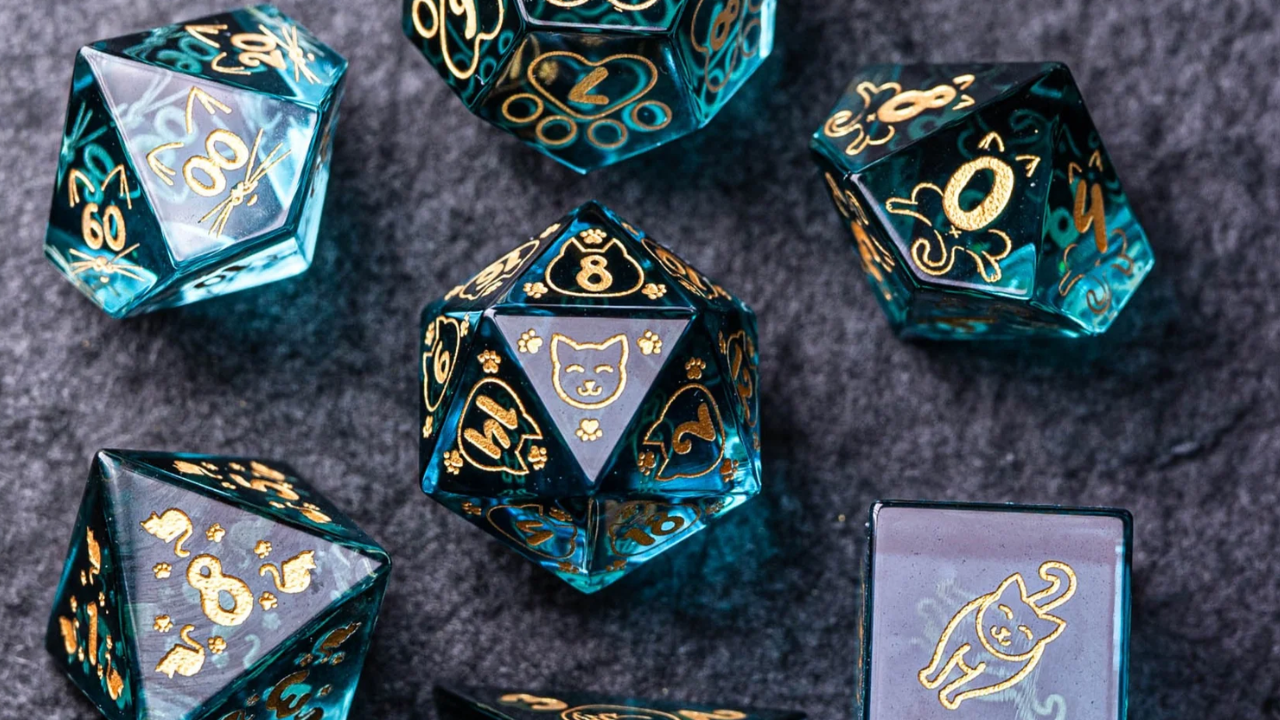Rolling dice to decide the outcome of different actions and events is a common gaming mechanic in Dungeons & Dragons (D&D). The game mechanics become deeper and more complex as a result of the numerous ways that these dice rolls are frequently altered. To effectively play D&D, one must comprehend how dice throws are altered.
The scores used to measure these skills are transformed into modifiers using a mathematical formula. When attempting actions connected to the corresponding ability, these modifications can be added to or subtracted from dice rolls. For instance, a character with a high Dexterity score receives an advantage on their rolls while undertaking actions that call for agility or accuracy.
Offering top-notch and exceptional custom service is the guiding principle of Urwizards. Different procedures are used here. To make these exquisite dice inexpensive, the Urwizards made contacts with the best suppliers and sold them to you directly. You can explore the following link https://urwizards.com to gain more information about Urwizards products. To make our dice, we combine superior components with expert craftsmanship.
Dice Roll Modification in D&D Dice Set
To account for a character’s abilities, skills, and situations, dice rolls in Dungeons & Dragons are sometimes altered by various bonuses and penalties. The game usually modifies dice rolls in the following ways:
Ability Modifiers
Six skills are available to each character: strength, dexterity, constitution, intelligence, and charisma. There are comparable ability scores for these skills, which are used to determine modifiers. The ability score serves as the source of the modification, which is used to change rolls. If a character has a strength score of 16, for instance, their strength modification is +3. They include this +3 modifier when rolling for an attack or a saving throw that involves strength.
Proficiency Bonus
A proficiency boost applies to characters who are skilled with particular abilities, tools, or saving throws. Low-level characters receive a +2 boost, and as they gain levels, the bonus grows. Rolls involving tools, skills, or saving throws that a character is proficient in have an extra proficiency modifier.
Magic and Items
Roll-boosting magical items, spells, and other powers are all possible. To give one example, a magical sword might add one to attack and damage rolls. Additionally, spells and other effects may grant characters brief boosts.
Combat Bonuses
Characters’ attack rolls in battle include any applicable ability modifiers. When a character uses a melee weapon, for instance, their Strength modifier is added to the attack roll. Dexterity modifiers are used in ranged assaults. Magical effects, class traits, or other situational advantages might offer additional advantages.
Skill Proficiency
Proficiency in a skill indicates somebody is an expert in that particular field. Characters may use their proficiency bonus in addition to the appropriate ability modifier when completing tasks associated with that talent.
Advantages and Disadvantages
Characters can sometimes roll with an advantage or a disadvantage. If a character has an advantage, they roll two D20s and choose the higher score. They roll two d20s and take the lower result if they are in the negative. Environmental conditions, spells, special skills, and other factors can all provide an advantage or disadvantage.
Penalties
Characters may also suffer penalties on their rolls in the opposite direction. These fines are deducted from the outcome. Various things, including spells, curses, or certain circumstances described by the DM, can result in penalties.
Critical Hits and Failures
A critical hit occurs when a character rolls a natural 20 on a d20. This particular success frequently results in additional damage. A natural 1 on a d20 roll is a critical failure, signifying a serious failure with possible disastrous outcomes.
Final Words
While modifiers are vital, it’s crucial to remember that a natural score of 20 or a natural score of 1 does not necessarily indicate success or failure on a skill check. The rules for critical hits and failures mostly govern attack rolls made during combat. The Dungeon Master may interpret and apply these rules in any way they see fit, based on the specifics of the game.
